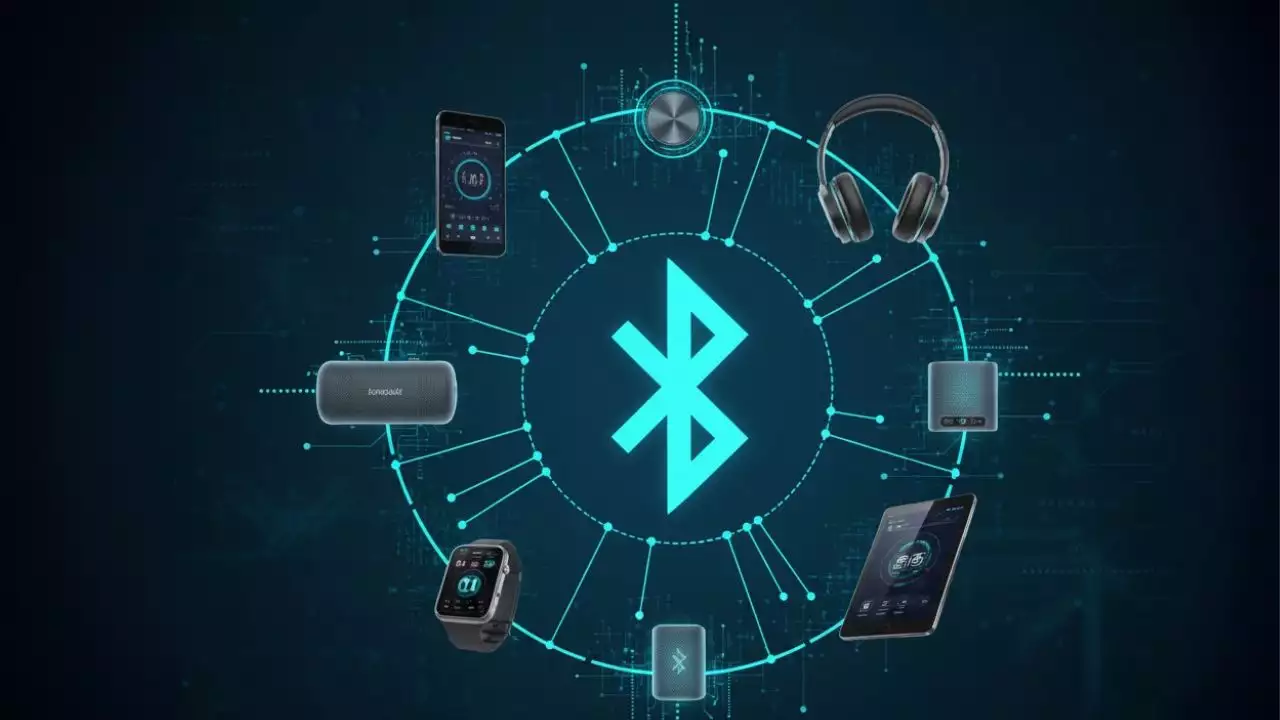In the ever-evolving world of computing, utility software often plays a behind-the-scenes role that keeps everything running smoothly. If you’re new to this concept, think of it as the digital equivalent of a Swiss Army knife for your computer, versatile tools designed not for creating documents or browsing the web, but for maintaining, optimizing, and troubleshooting the underlying systems. As technology advances into 2025, with smarter devices and more complex networks, understanding utility software has become crucial for both everyday users and IT professionals. This article dives deep into what utility software is, why it matters, and how it fits into the broader landscape of digital tools.

To start, let’s clarify the basics. Utility software is a category of programs specifically built to support and enhance the operation of your computer or network infrastructure. Unlike application software, which focuses on direct user tasks like editing photos or managing emails, utility software handles the grunt work that ensures your system runs efficiently. For instance, it might include tools for backing up data, cleaning up temporary files, or monitoring hardware performance. These programs are often bundled with operating systems, but you can also find standalone or third-party options that offer more specialized features.
Drawing from reliable sources, such as detailed overviews on platforms like Wikipedia, utility software is defined as programs that manage and tune system resources. This means they help with tasks that aren’t glamorous but are essential, like preventing crashes or freeing up disk space. In an era where data breaches and hardware failures are common concerns, these tools provide a layer of protection and efficiency that can save time and frustration.
Throughout this article, we’ll explore the various facets of utility software, from its core functions to real-world applications. We’ll also touch on how it’s evolving with trends like artificial intelligence integration and cloud-based solutions. By the end, you’ll have a comprehensive understanding of why these tools are indispensable in modern computing.
- See more:What Is System Software?
What Exactly Is Utility Software?
At its heart, utility software refers to a collection of programs designed to perform specific maintenance and diagnostic tasks on your computer. These aren’t the flashy applications you use for entertainment or productivity; instead, they focus on the infrastructure that supports those apps. For example, a utility might scan for viruses or defragment a hard drive to improve access speeds.
Historically, utility software emerged as computers became more complex in the mid-20th century. Early systems like IBM’s OS/360 included basic utilities for tasks such as file management and error checking. Today, these programs have evolved to handle everything from simple file compression to advanced network diagnostics. According to general knowledge from tech resources, utility software is typically lightweight and operates in the background, making it ideal for routine system upkeep.
One key aspect is how utility software contrasts with system software as a whole. System software, like an operating system (OS), provides the foundational platform for all other programs. Utility software, on the other hand, is a subset that offers targeted enhancements. For instance, while Windows includes built-in tools like Disk Cleanup and Task Manager, third-party utilities might add features like automated backups or real-time performance monitoring.
In practice, utility software can be categorized based on its primary function. Some are preventive, helping to avoid issues before they arise, while others are reactive, fixing problems as they occur. This dual role makes them versatile for users ranging from home enthusiasts to enterprise IT teams.
Types of Utility Software
Utility software comes in various forms, each tailored to specific needs. Let’s break this down into key categories to give you a clearer picture.
System Utilities
System utilities are all about optimizing and monitoring your computer’s core operations. These tools ensure that hardware and software components work harmoniously. For example, a system utility might track CPU usage or manage memory allocation to prevent slowdowns.
Take Task Manager in Windows as a classic example, it’s a built-in utility that lets you view and end processes that are hogging resources. In 2025, with the rise of multi-core processors and AI-driven systems, advanced system utilities now include features like predictive analytics, which can forecast potential failures based on usage patterns. This proactive approach is particularly useful for gamers or professionals working with resource-intensive applications like video editing software.
Other system utilities focus on security. Antivirus programs, though often considered standalone applications, frequently include utility functions such as malware scanning and firewall management. These tools scan files in real-time, protecting against threats like ransomware, which has become more sophisticated with the advent of machine learning.
Disk and File Management Utilities
When it comes to storage, disk and file management utilities are indispensable. They help organize, protect, and recover data, which is crucial in an age where digital storage is expanding rapidly.
A prime example is Disk Defragmenter, which rearranges fragmented data on your hard drive to improve read/write speeds. With the shift to solid-state drives (SSDs) in 2025, utilities have adapted; for instance, SSD optimization tools now handle wear leveling to extend the drive’s lifespan. File management utilities, like those that compress files or encrypt data, are equally important. Imagine needing to send large files over the internet, a utility like WinZip can compress them into a smaller package, making transfer easier and faster.
Backup utilities deserve special mention. In the context of the provided research, tools like those from BIXOLON or Zyxel often include backup features for devices and networks. These utilities automate the process of copying data to external drives or cloud storage, safeguarding against data loss from hardware failures or cyber attacks. For businesses, this means compliance with data protection regulations, while individuals can rest easy knowing their family photos are secure.
Network and Diagnostic Utilities
As connectivity becomes ubiquitous, network utilities play a vital role in maintaining stable connections. These tools diagnose issues with internet setups, troubleshoot connectivity problems, and even monitor bandwidth usage.
For instance, a utility like ping in command-line interfaces checks if a server is reachable, helping identify network bottlenecks. In 2025, with the proliferation of IoT devices, advanced utilities incorporate AI to detect anomalies, such as unusual traffic that might indicate a breach. Diagnostic utilities go a step further by scanning hardware components, like checking the BIOS or UEFI firmware for updates, ensuring your system is up-to-date and secure.
From the research on Zyxel and Canon tools, we see how companies provide specialized utilities for their devices, such as installation aids or driver updates. This highlights the practical application of network utilities in real-world scenarios, like setting up a home office network or managing a fleet of printers.
How Utility Software Works and Its Benefits
Utility software operates by interacting directly with the operating system’s core functions. Most are designed to run in the background or via simple user interfaces, making them accessible even to non-experts. For example, when you launch a disk cleanup tool, it scans your drive for unnecessary files and prompts you to delete them, freeing up space.
The benefits are manifold. First, they enhance performance by optimizing resources, which can lead to faster boot times and smoother multitasking. In a 2025 context, with devices handling more data than ever, utilities that use machine learning can automatically adjust settings for peak efficiency.
Secondly, they improve security. Utilities for encryption and firewall management protect sensitive data, a critical need in today’s digital landscape. Thirdly, they offer convenience through automation, scheduling backups or updates means less manual intervention, reducing the risk of human error.
Real-world applications abound. In a corporate setting, IT teams use utilities to monitor server health, ensuring uninterrupted operations. For individuals, tools like password managers within utility suites help secure online accounts. From the additional context provided, batch files in older systems like DOS demonstrate how utilities automate repetitive tasks, a principle still in use today with scripting in modern OSes.
Comparing Utility Software to Other Types
To appreciate utility software fully, it’s helpful to compare it with other categories. Here’s a quick breakdown in table form to illustrate the differences:
| Software Type | Primary Purpose | Examples | Key Focus |
|---|---|---|---|
| Utility Software | System maintenance and optimization | Disk Cleanup, Antivirus | Supporting infrastructure |
| Application Software | Direct user tasks | Microsoft Word, Google Chrome | Productivity and entertainment |
| System Software | Providing a platform for other software | Windows OS, Linux Kernel | Core operations |
This comparison shows that while application software solves specific problems, utility software ensures the environment is ready for those applications. In 2025, the lines are blurring with hybrid tools that combine elements, like OS-integrated utilities for app management.
Real-World Examples and Trends in 2025
Let’s look at some popular examples. Built-in utilities from major OS providers, like Apple’s Time Machine for backups, exemplify how these tools are embedded in daily use. Third-party options, such as CCleaner or Malwarebytes, offer advanced features for users seeking more control.
Looking ahead, 2025 trends include greater integration with AI and cloud services. Utilities now predict maintenance needs based on usage data, and cloud-based versions allow remote management of devices. For instance, a utility might sync backups across multiple devices seamlessly, reflecting the mobile-first world we’re in.
In sectors like healthcare or finance, utility software ensures compliance and data integrity, with tools for encryption and auditing becoming standard.
Best Practices for Using and Installing Utility Software
When selecting utility software, prioritize reputable sources to avoid malware. Read reviews and check compatibility with your OS. Installation is straightforward, download from official sites, run the installer, and follow prompts, like accepting User Account Control in Windows.
Best practices include regular scans, updating utilities, and using them judiciously to avoid over-optimization, which can sometimes cause issues. Always back up data before running diagnostic tools, as they might alter system files.
In summary, utility software is the unsung hero of the computing world, providing the maintenance and support that keep systems humming. As we move into 2025, its role will only grow, making it an essential skill for anyone interacting with technology.
Frequently Asked Questions
What is the main difference between utility software and application software?
Utility software focuses on maintaining and optimizing your computer’s infrastructure, whereas application software is designed for specific tasks that directly benefit users, like word processing or web browsing. In most cases, utility tools run in the background to ensure smooth operation, while applications take center stage. For example, a utility might handle disk defragmentation, freeing up resources for your favorite apps to perform better.
How does utility software improve computer performance?
Utility software enhances performance by managing resources efficiently, such as clearing temporary files or defragmenting drives. Typically, these tools identify and resolve bottlenecks, like high CPU usage, allowing your system to run faster and more reliably. In 2025, with AI enhancements, some utilities can even automate these processes, predicting and preventing slowdowns before they impact your work.
Are utility programs safe to use on my computer?
Yes, as long as you source them from trusted providers, utility programs are generally safe. However, always download from official websites and keep them updated to protect against vulnerabilities. In practice, reputable utilities include features like secure scanning, but be cautious with third-party tools that might inadvertently introduce risks if not properly vetted.
Can I use utility software on mobile devices?
Absolutely, utility software has adapted to mobile platforms. For instance, apps for battery optimization or storage management are common on Android and iOS. These tools help with tasks like freeing up space or monitoring data usage, making them essential for mobile users in 2025’s connected world.
What are some free utility software options available?
There are several free options, such as the built-in tools in Windows like Task Manager or open-source alternatives like BleachBit for system cleaning. These provide solid functionality without cost, though premium versions might offer advanced features. Generally, starting with free utilities is a great way to test their effectiveness before investing in paid ones.
How often should I run utility software on my computer?
It’s recommended to run utility software regularly, such as weekly scans for maintenance and monthly backups. This frequency can vary based on usage; heavy users might benefit from daily optimizations. In most cases, scheduling automated tasks ensures consistent performance without disrupting your routine.
What should I do if a utility software causes problems?
If a utility causes issues, first try undoing any changes it made, like restoring from a backup. Then, check for updates or consult the software’s support resources. In some situations, you may need to use System Restore in Windows to revert to a previous state, ensuring your system remains stable. Always research and test utilities in a controlled environment.
Is utility software necessary for everyday users?
For everyday users, utility software is highly beneficial, even if not always essential. It helps maintain system health, prevent data loss, and extend device longevity. With the increasing complexity of technology in 2025, incorporating basic utilities into your routine can save time and reduce frustration in the long run.

Hi, I’m Nghia Vo: a computer hardware graduate, passionate PC hardware blogger, and entrepreneur with extensive hands-on experience building and upgrading computers for gaming, productivity, and business operations.
As the founder of Vonebuy.com, a verified ecommerce store under Vietnam’s Ministry of Industry and Trade, I combine my technical knowledge with real-world business applications to help users make confident decisions.
I specialize in no-nonsense guides on RAM overclocking, motherboard compatibility, SSD upgrades, and honest product reviews sharing everything I’ve tested and implemented for my customers and readers.







